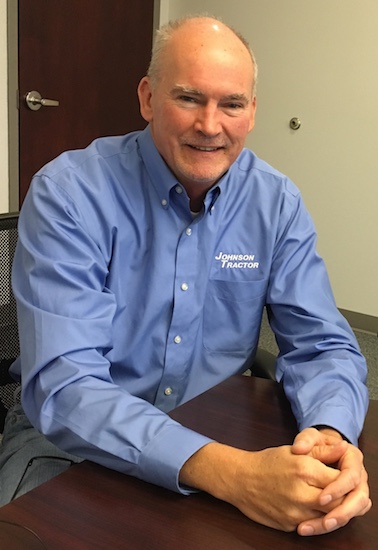Editor’s Note: Over lunch and following a meeting last week with Johnson Tractor President Leo Johnson, at his Janesville, Wis., location, Farm Equipment inquired about the shortline (specialty) equipment business, as Farm Equipment staff was preparing to attend the Farm Equipment Manufacturers Association meeting on April 17-20 in Omaha. Johnson Tractor is a Case IH and Kubota dealer who operates 4 stores in Wisconsin and Illinois, and Dealership of the Year recipient. Following is Johnson reply to the questions about shortline equipment, and what manufacturers in the segment may not fully understand about distribution, and the dealer’s challenges with shortlines among the other capital challenges.
There are two issues with regard to shortline equipment in mainline dealerships that manufacturers may not realize.
Why are full-line dealers reluctant to take on shortlines in the first place?
- Training for both sales and service is important for any product and, obviously, it takes time and expense by the dealer. Especially when the training requires a flight and a night or two in a hotel.
- While many shortlines offer terms, most do not offer any terms on the trade in. Say a dealer stocks a manure spreader with invoice of $50,000. It may come with 6 months terms, but if the dealer trades in a 2-year old one with $30,000 invested in the trade, he still pays the manufacturer $50,000 and has his own money invested in the trade. It’s not a big deal when it’s only one piece, but the trend is doing more of these kinds of trades. Pretty soon you’ve sold $500,000 worth of the manure manufacturer’s products, but still have $150,000 worth of used spreaders with the dealership’s money tied up in the trades. This is a bigger problem with the shortlines as the products tend to be more specialized. Profit opportunities exist, but it takes capital to succeed.
- When we look at our aging report on wholegoods and parts, our shortlines are always the oldest. There are essentially no transfers on wholegoods to other dealers, and there is generally no annual surplus return privileges’ on parts.
- Warranty reimbursement is generally for terrible with shortlines.
Why are the full-line dealers that already are signed up with a shortline brand reluctant to stock up to what the manufacturer considers the market potential?
- Just because you sell 5 of a certain item one year doesn't mean you need to order 6 the next. That's the mentality of most shortline sales reps. Then there’s the age-old “carry” program where a certain percentage of an order might carry another year interest free. It is an incentive to order more than you think you can sell just on the outside chance you’ll get lucky and need it. But what usually happens is that the carryover pieces get robbed for parts, paint starts to deteriorate, the hitch gets banged up by moving it to mow around, or other negative things that come under the heading of “lot rot.” A farmer loves seeing that you have 3-4 of an item when he drives in, as he knows that he’s in a great bargaining position. And he's usually right.
- Cherry picking certain products also angers shortlines. For instance, we love selling 15-foot rotary mowers. Our brand has a proven product that has a good reputation. We also handle a rival brand now available through the partnership/affiliation programs. The products are nearly the same, and we stock one size from one manufacturer and pretty much everything else from the other. But now the program discount isn’t as good because we don’t order items from all categories, even though our total settlements are huge.
There is a great need for shortlines. The key from a dealer’s perspective is to find a hot product, sell the hell out of it and then know when to stop ordering. It’s tough to do.






